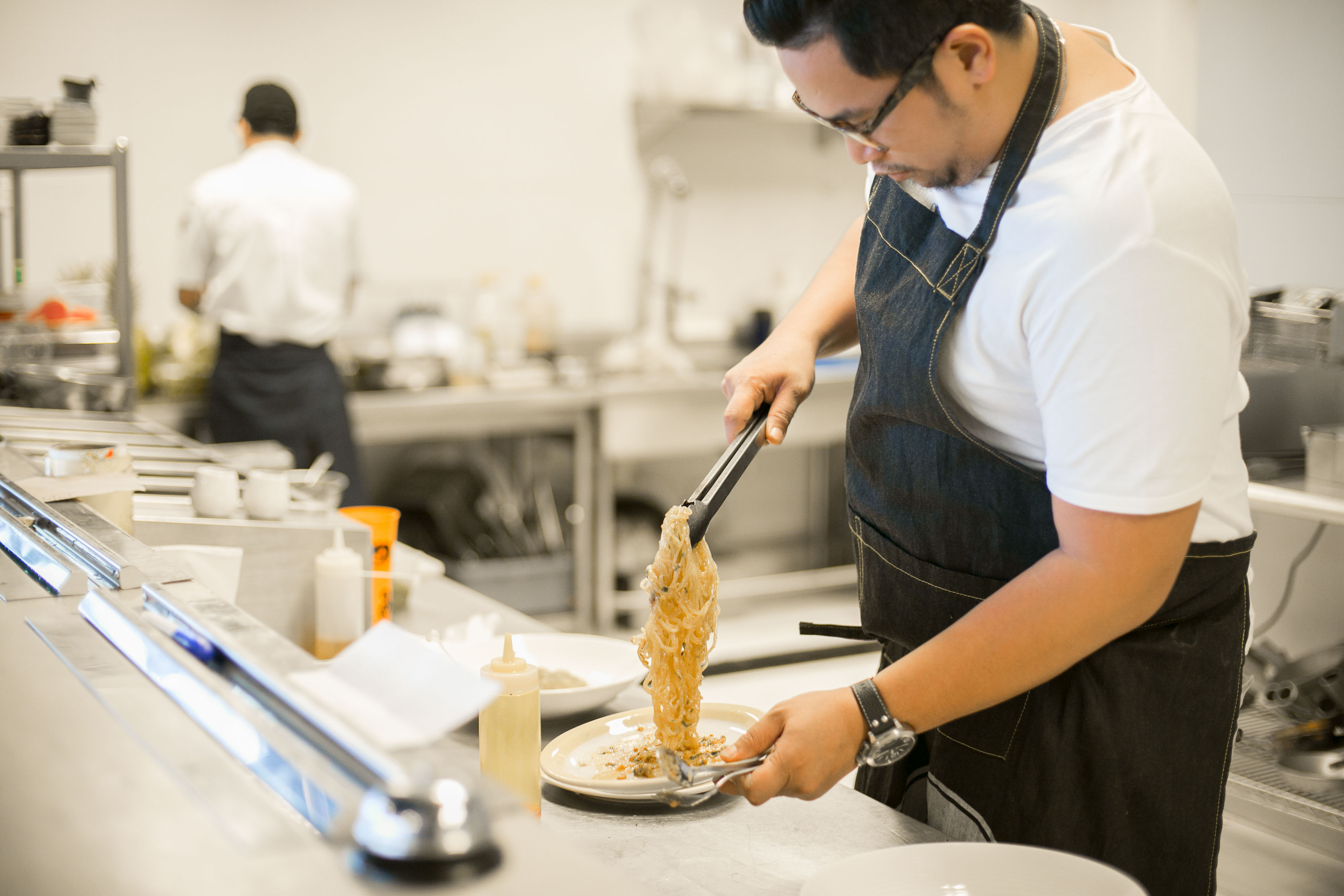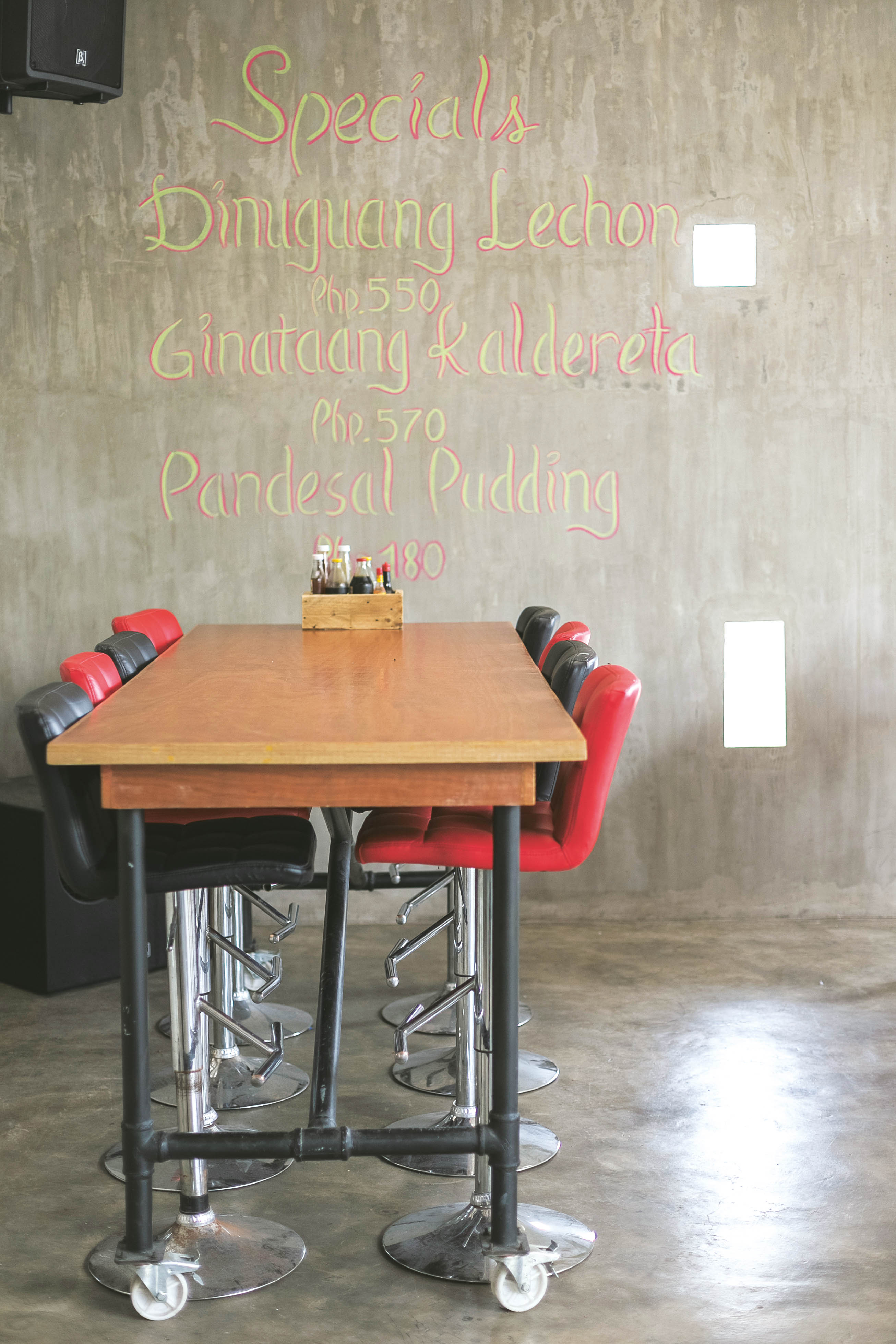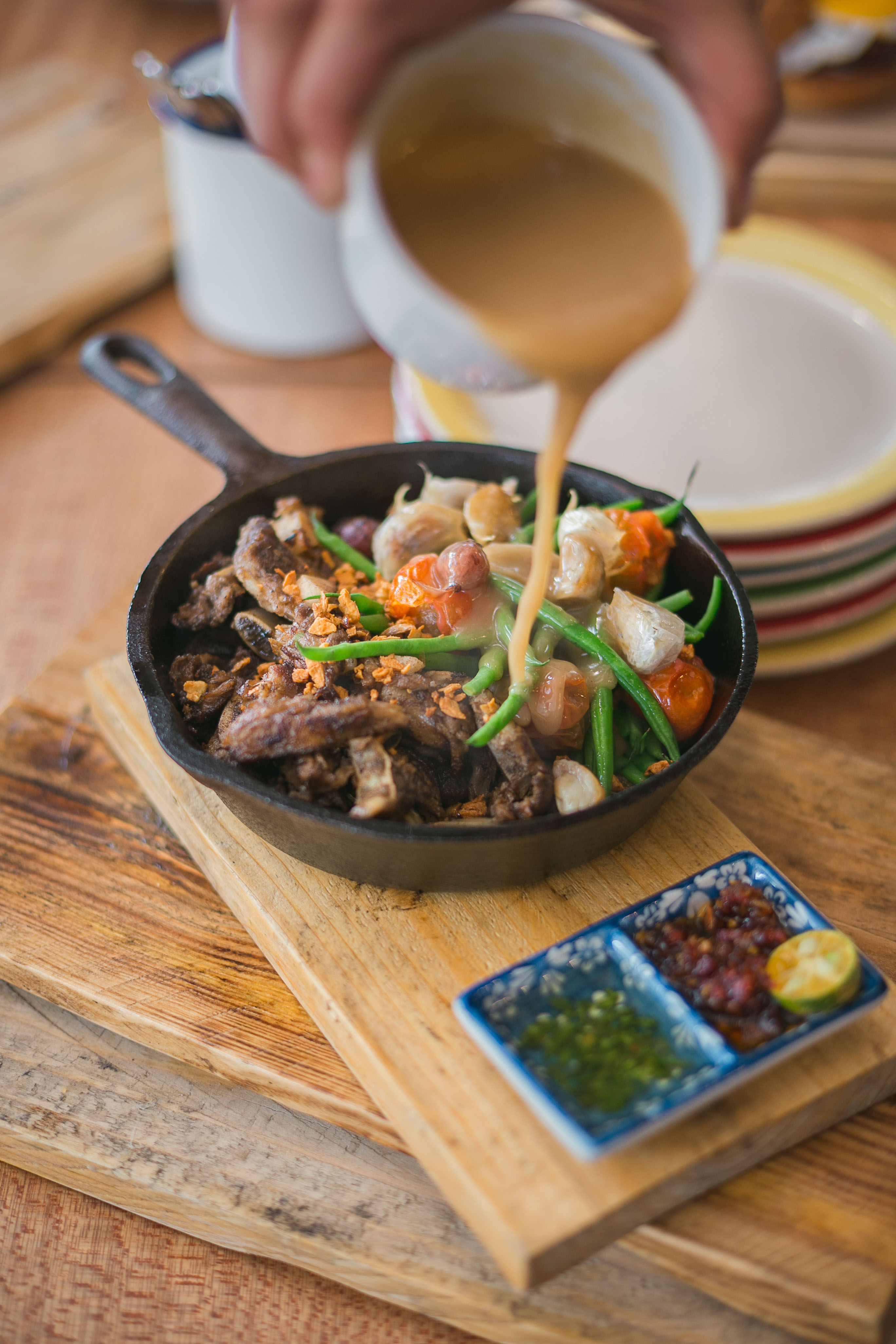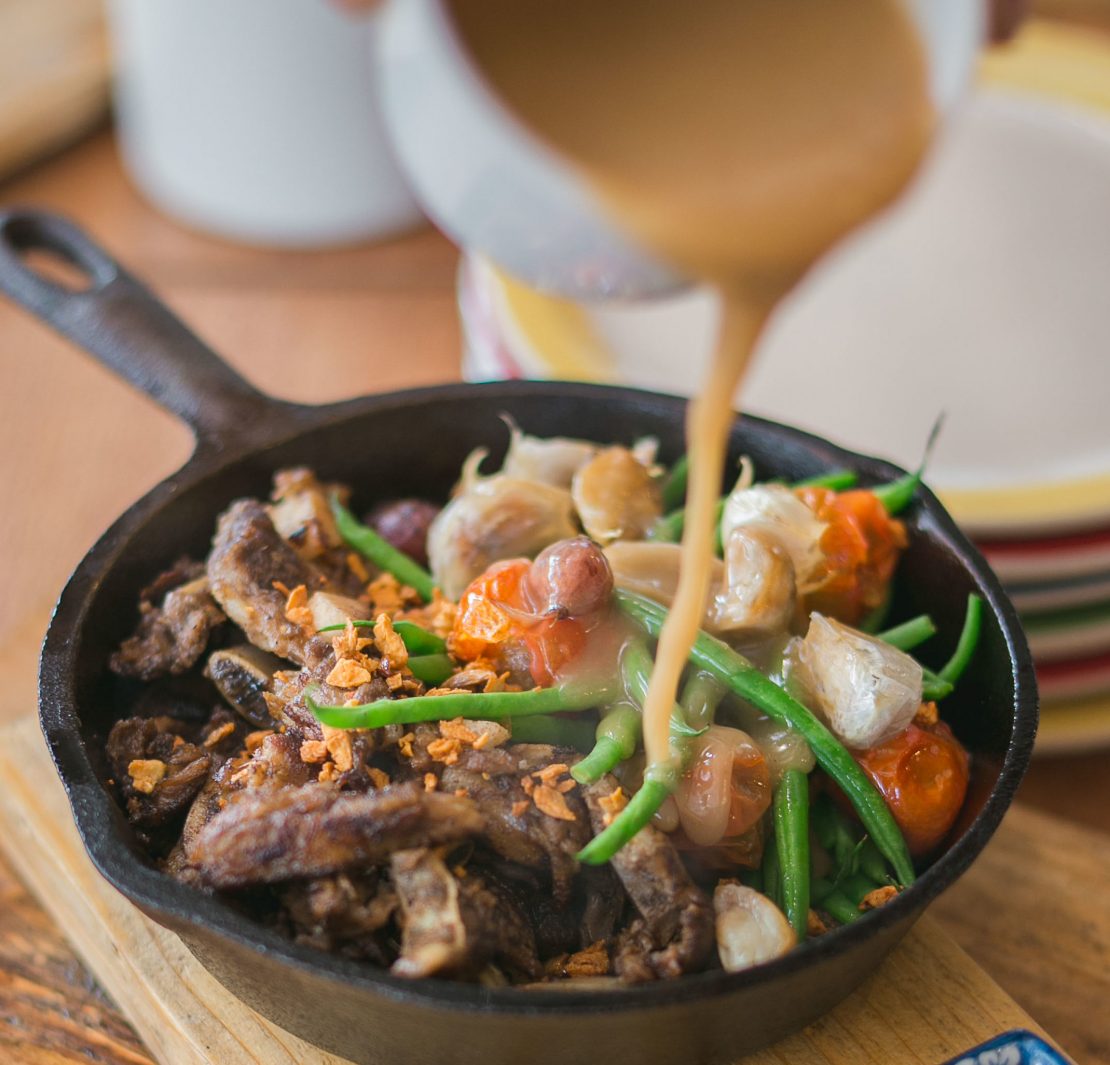Locavore, a Filipino gastropub that chills on the side of Brixton Street, has a discreet façade, with a big wooden gate where letterings of the restaurant’s namesake is simply placed. The outside is just as casual as the interiors, with bare gray walls, industrial ceiling, and an open bar and kitchen. It’s a departure from the typical Filipino dining places with capiz or Nipa Hut designs, but it still has that welcoming, laid-back vibe where one can simply grab a chair and order food for sharing.
The term locavore refers to a food movement in the US and Australia, where food providers and individuals source out ingredients within a hundred-mile radius. This Locavore, on the other hand, supports local suppliers from different regions in the country. The seafood comes from General Santos, Davao, and Kalibo, the beer comes from microbreweries in Parañaque and Makati, and the vegetables are 80 percent organic. “We serve straight up Filipino food. Nothing fancy,” executive chef and partner Mikel Zaguirre says. The chef updated traditional dishes coming from the heirloom recipes of the prominent Magsaysay family without changing the family’s original intentions.
[blockquote author=”Mikel Zaguirre” pull=”center”] “I really want to put the Filipino cuisine on the map. It’s just a matter of finding the right texture, cooking techniques, and presentation. The flavor is already there.” [/blockquote]
Take, for example, the sinigang beef, a cross between the well-loved sour soup dish and beef steak. This version, however, has the sinigang soup strained from the five-hour-braised short ribs and is served with gravy. Unexpectedly, the taste isn’t at all confusing, as the sourness of the beef is balanced by the herbs, spices, and the gravy. The luglog uses Korean noodles chapchae instead of vermicelli, adding a chewy and sweet texture to the dish. Another notable dish is the chori burger, homemade pan de sal filled with chorizo, egg, cheese, and barbecue sauce. The turon will certainly take you back to your childhood days, only this time, you’ll be able to enjoy it differently with puff pastry and a salted egg sauce.


“I really want to put the Filipino cuisine on the map. It’s just a matter of finding the right texture, cooking techniques, and presentation. The flavor is already there,” Zaguirre says. For Locavore, authenticity doesn’t come from sticking to rigid rules and pre-conceived notions of what Filipino food should be. It’s how food can be transformed while maintaining a taste that’s familiar and closer to home.
Writer: DIANNE PINEDA
PHOTOGRAPHY JILSON SECKLER TIU




